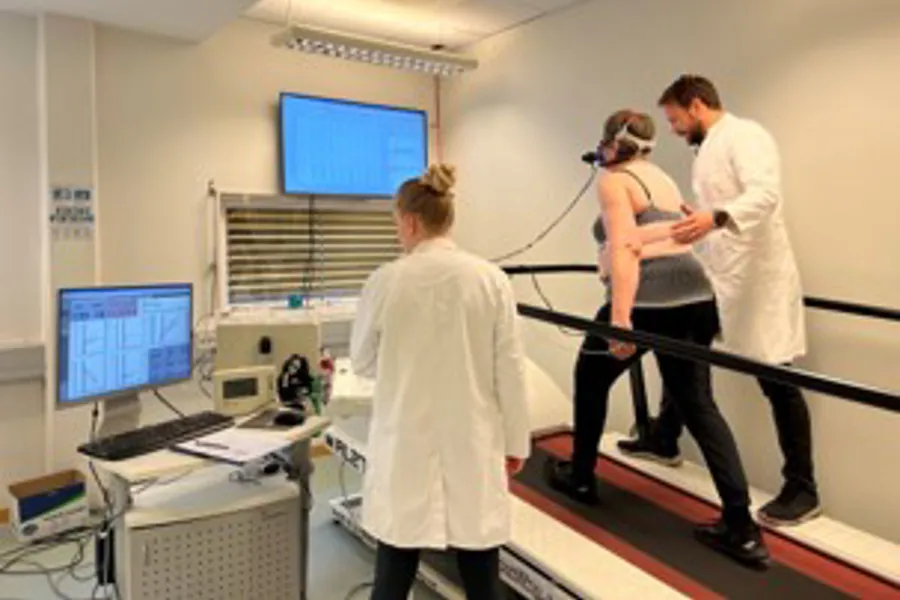The Impact of Exercise after Breast Cancer Treatment
The CAUSE Study (Cardiovascular Survivors Exercise) is a randomized controlled trial that investigates the effects of endurance training in long-term breast cancer survivors. The study clearly shows that aerobic exercise can have a significant positive impact on quality of life, physical fitness, and mental health in long-term survivors, emphasizing the importance of physical activity in rehabilitation.

Photo: Mali Sæter
The CAUSE study is a collaboration between the Norwegian School of Sport Sciences (NIH), ProCardio (OUS), and the National Competence Center for Late Effects After Cancer Treatment. Many breast cancer survivors experience significant physical and psychological late effects even many years after treatment, which is not always expected or well-known.
ProCardio PhD-fellow, Mali Sæter, and NIH PhD-fellow, Sare Hassing Johansen have been affiliated researchers in the project.
Tailored exercise or no exercise
The study is the largest randomized controlled trial investigating the effects of exercise in women with breast cancer ten to fifteen years prior. The study recruited 140 participants with the average age of 59. None of the participants had engaged in regular exercise before the study.
A series of tests were conducted before and after the exercise program to evaluate various health metrics along with questionnaires. Participants were divided into two groups, one which received a tailored exercise program and one which did not receive any exercise advice.
Long-term effects
Exercise significantly improved physical fitness, quality of life, and other well-being factors. However, the study also revealed that improvements in oxygen uptake were considerably lower in these survivors compared to individuals without a cancer history, highlighting persistent treatment-related impairments in their cardiovascular and muscular systems.
Implications for future treatment
The findings highlight the importance of structured exercise in enhancing the quality of life for breast cancer survivors, suggesting that such interventions could mitigate long-term health issues associated with cancer treatment.
Hopefully these results can influence the integration of exercise into the standard rehabilitation protocols for cancer patients, potentially leading to improved health outcomes and lower healthcare costs in the future.
Mali Sæter et. al. found no significant differences in oxygen uptake, heart function, and cardiovascular risk factors at baseline (link to publication at nih.gov).
Dissertation
In relation to Sara Hassing Johansen's defence on 20. May 2025, a number of news articles covering the study have been published:
- Unik norsk studie: - Vi fikk litt sjokk (tv2.no)
- Overraskesd over nye funn: - Dette er en marsjordre (tv2.no)
- Kreftoverlevar Monica trena i fem månader: Resultata er oppsiktsvekkande
GPT-3 is used for text correction.